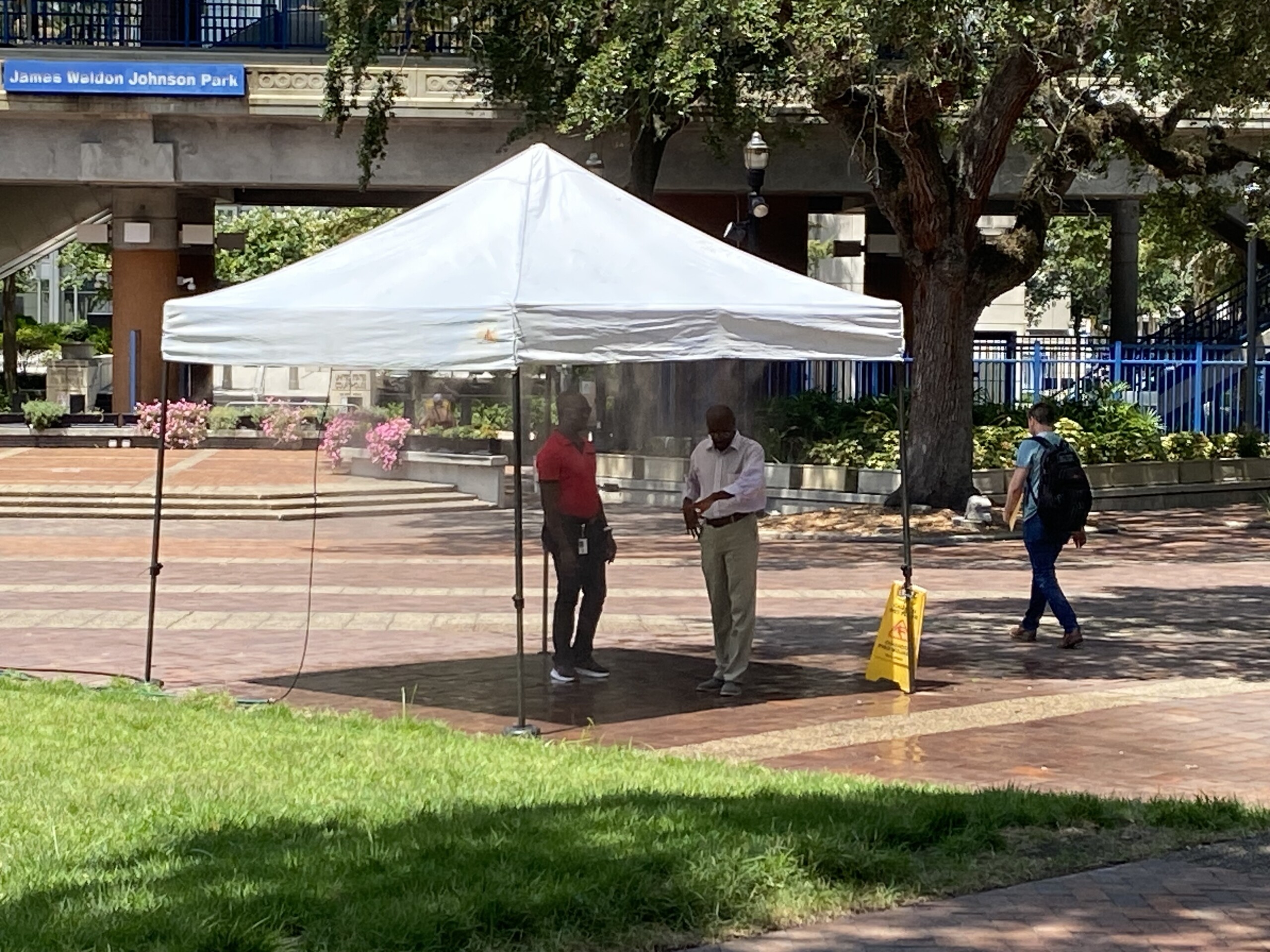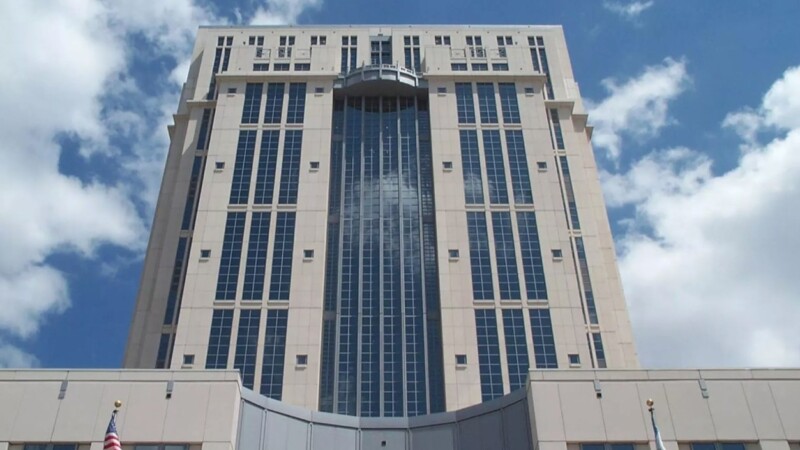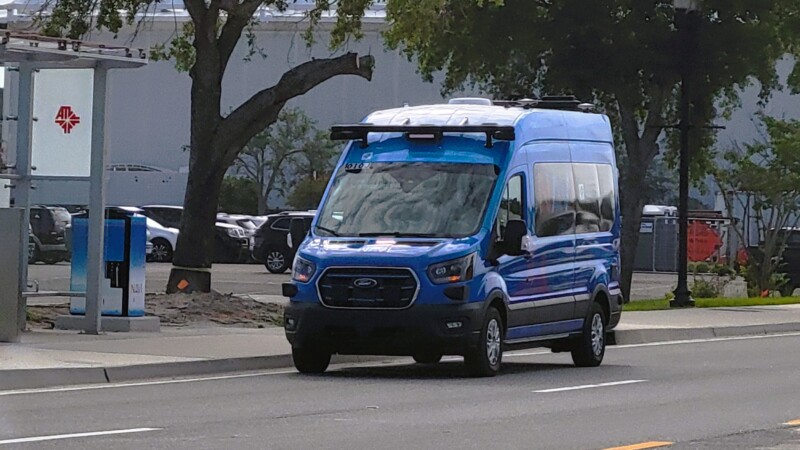The heat is taking its toll on everyone in Jacksonville, but 67-year-old James Collins has it worse than many.
Collins, who is homeless, is thankful for the misting stations in James Weldon Johnson Park and the cooling center at the Main Library in Downtown Jacksonville, comforts that can be life-saving for him and older people.
“If it wasn’t for that air conditioning there, we’d probably faint out here, and we are trying to do the best we can to stay cool,” Collins says.
With the heat index as high as 113 degrees, the city on Tuesday opened six cooling centers to give people somewhere to cool down, get water and have something to eat.
The cooling centers are part of what the city calls its Excessive Heat Incident Plan. The city says it will open the centers when the National Weather Service forecasts heat indexes between 108 and 112 degrees for three consecutive days or when the heat index is above 113 degrees for a day.
No relief from the heat is in sight this week. Temperatures in the high 90s are forecast into next week with an heat index — the combination of temperature and humidity — up to 113.
It’s not only the homeless who will suffer. People who work outside, like Marco Molina, struggle as well.
Molina, part owner of the Pura Vida Food Truck in Jacksonville, says he is thankful to have days where he can have shade over his truck.
“We have like 20 bottles of water for us. We have been drinking a lot of water,” he said. “We have two XL fans working in the food truck. One fan blowing fresh air from the window and another one grabbing some fresh air from outside.”
On hot days, Molina is not able to close the large back door of his food truck because it would be too hot inside.
Older people are especially vulnerable. Adults 65 or older are more prone to heat-related illnesses because they can’t adjust to sudden temperature changes as fast as younger people, according to the Centers for Disease Control and Prevention.
Signs of heat-related illness include sudden dizziness, heat cramps, swelling in legs or ankles, heat exhaustion and heat stroke.
Older adults — and younger ones too — are advised to wear loose-fitting, light-colored clothing, drink plenty of liquids and take lots of breaks.







